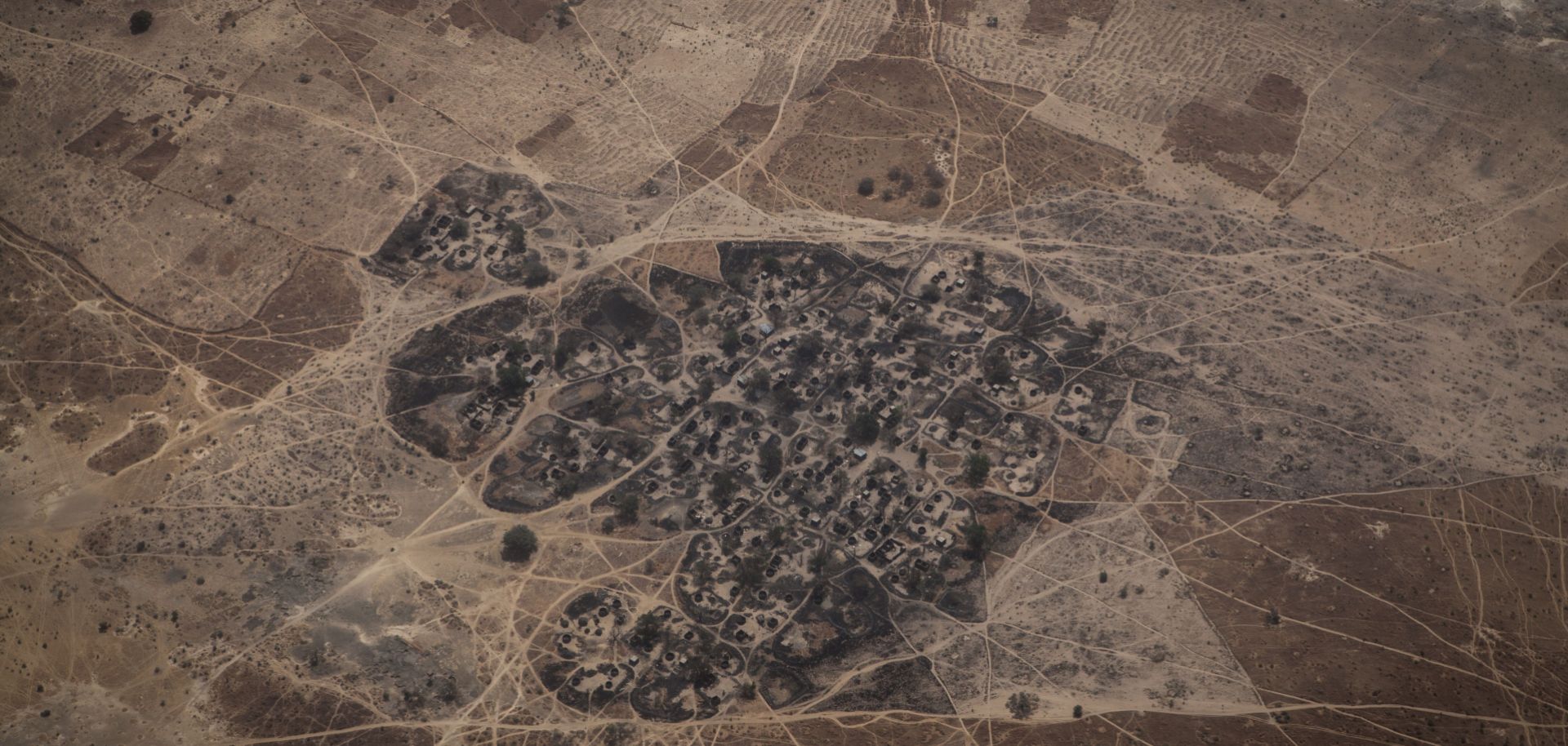ASSESSMENTS
In Nigeria, Politics and Militancy Go Hand in Hand
Aug 31, 2018 | 17:38 GMT

An aerial photograph from February 2017 shows a burnt village, believed to have been attacked by Boko Haram, in northeast Nigeria, between Maiduguri and Monguno district in Borno State. The Nigerian air force has constructed a makeshift runway as part of military tactics to counter the Boko Haram insurgency and to accelerate distribution of relief materials by donor agencies to internally displaced people in northeastern Nigeria, where the conflict with Boko Haram has killed at least 20,000 people and left more than 2.6 million homeless in its six-year insurgency.
(FLORIAN PLAUCHEUR/AFP/Getty Images)
Highlights
- Nigerian President Muhammadu Buhari, whose political coalition and party have suffered dozens of defections in the National Assembly, will face a significant election test in February, when he hopes to win a second term.
- The country's main opposition alliance will select a northern presidential candidate to match Buhari; the two sides could split votes in the northwestern areas, making competition elsewhere the deciding factor.
- Militancy will play a critical role in next year's elections as Nigeria's various stakeholders try to exploit the country's insecurity for political gain.
Subscribe Now
SubscribeAlready have an account?
